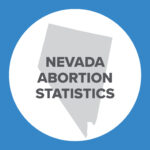ANALYSIS: After 9 Million Heartbeats, NPR Abortion Broadcast Leaves No Doubt About When Unborn Baby’s Life Ends

Abortion Equipment Has 10 to 20 Times the Suction Power of a Household Vacuum
Washington, D.C. – NPR on Thursday broadcast heartbreaking audio of a recent abortion performed in Michigan on a mother who was 11 weeks pregnant.
While the reporter described the setting as “feeling like childbirth,” Dr. Ingrid Skop, an OB/GYN who has delivered more than 5,000 babies, says that what listeners heard is actually quite different:
“A sharp-toothed grasping instrument, called a tenaculum, is used to grasp the cervix, providing traction as the abortionist inserts progressively larger metal dilators to stretch open the cervix. Then, as we heard on NPR, the electric vacuum aspirator is turned on so that the abortionist can suction out the unborn baby.
“Planned Parenthood describes the procedure as using ‘gentle suction to remove the pregnancy from your uterus.’ However, Dr. Anthony Levatino, a former abortionist, has explained that an electric vacuum aspirator has up to 10 to 20 times the suction power of a household vacuum. That’s likely why we hear the mother groaning in pain in the NPR recording. Suction that powerful will hurt as it rips out the adherent placenta and unborn child, even after the mother receives pain medication.
“Tragically, while the mother’s physical pain may be over, there is no guarantee that the emotional pain will subside quickly. We know from compassionately listening to women who experienced abortion, as well as a review of the scientific literature, that many women live with regret, anxiety, depression, substance or alcohol abuse, and the potential for self-harm for months or years following the abortion.
“Surely, our society can offer better solutions to women.”
Dr. Ingrid Skop, M.D., F.A.C.O.G., is an experienced OB/GYN with more than 25 years’ experience who serves as director of medical affairs at Charlotte Lozier Institute.
Dr. Tara Sander Lee, Ph.D., a Harvard-trained scientist who serves as director of life sciences at Charlotte Lozier Institute, explains what modern science reveals about babies at 11 weeks of gestation:
“What NPR described as ‘pregnancy tissue’ was a baby, who by 11 weeks already had fingers and toes, displayed a preference for using their right or left hand when sucking his thumb, and had heart activity resembling that of a newborn. By 11 weeks, the baby already had 4,000 distinct anatomical parts, or 90% of the named body parts found in an adult.
“Science confirms that an unborn baby’s heart is beating rhythmically by 6 weeks. By 11 weeks, the age of the baby aborted in the NPR broadcast, the baby had a heart rate of 168 beats per minute and the heart had already beat over 9 million times.
“By 11 weeks, the baby that NPR describes as ‘pregnancy tissue’ was alive and active. In fact, scientists have determined that at 11 weeks the unborn baby has brain activity and doesn’t stay still for more than 13 minutes at a time. The phrase ‘pregnancy tissue’ is a cruel exercise in semantics designed to deny or obscure what science knows about the humanity of the baby.
“My heart goes out to this woman who chose to end the life of her own child and then share this experience on national radio—this is a moment of deep sadness.”
To review the most accurate and up-to-date science of human prenatal development, visit Charlotte Lozier Institute’s VoyageOf Life.com resource.
For additional research and citations regarding the reality of abortion procedures, read the Charlotte Lozier Institute resource, “Does Banning Abortions After 15 Weeks Make Any Sense?”
Charlotte Lozier Institute was launched in 2011 as the education and research arm of Susan B. Anthony Pro-Life America. CLI is a hub for research and public policy analysis on some of the most pressing issues facing the United States and nations around the world. The Institute is named for a feminist physician known for her commitment to the sanctity of human life and equal career and educational opportunities for women.
###



























